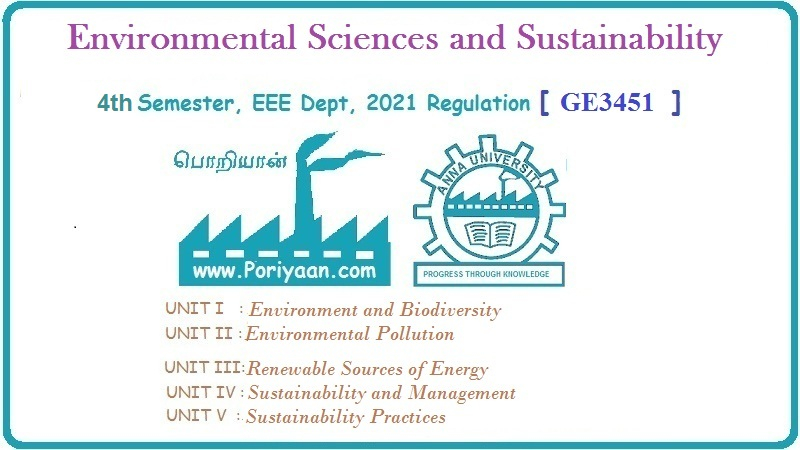Environmental Sciences and Sustainability: Unit III: Renewable Sources of Energy
Ocean Thermal Energy Conversion (OTEC)
Working Principle, Advantages, Limitations
• The warm water acts as a heat source whilst the cold water at about 1000 m acts as a heat sink. This creates a thermal power cycle which can be used to generate electricity.
Ocean Thermal Energy Conversion (OTEC)
•
Ocean thermal energy conversion (OTEC) is a source of renewable energy.
•
Ocean Thermal Energy Conversion (OTEC) makes use of the naturally occurring
thermal gradient of the oceans.
•
The warm water acts as a heat source whilst the cold water at about 1000 m acts
as a heat sink. This creates a thermal power cycle which can be used to
generate electricity.
•
The minimum difference required between the heat source and the heat sink is 20
°C.
•
The efficiency of OTEC is very low (< 4 %) but the enormous magnitude of
this potential energy resource merits its investigation.
•
In addition, OTEC could provide a continuous energy supply, unlike many other
renewable technologies.
1. Advantages of OTEC System
1.
Power from OTEC is continuous, renewable and pollution free.
2.
Unlike other forms of solar energy, output of OTEC shows very little daily or
seasonal variation.
3.
Drawing of warm and cold sea water and returning of the sea water, close to the
thermocline, could be accomplished with minimum environment impact.
4.
Electric power generated by OTEC could be used to produce hydrogen.
5.
Tropical and sub-tropical island sites could be made free from pollution caused
by conventional fuels for electricity generation.
6.
OTEC system might help in enrichment of fishing grounds due to the nutrients
from the unproductive deep waters to the warmer surface waters.
7.
A floating OTEC plant can generate power even at mid sea and can be used to
provide power for off shore mining and processing of manganese nodules.
2. Limitations of OTEC System
1.
Capital investment is very high.
2.
Due to small temperature difference in between the surface water and deep
water, conversion efficiency is very low about 3-4 %.
3.
Low efficiency of these plants coupled with high capital cost and maintenance
cost makes them uneconomical for small plants.
Environmental Sciences and Sustainability: Unit III: Renewable Sources of Energy : Tag: : Working Principle, Advantages, Limitations - Ocean Thermal Energy Conversion (OTEC)
Related Topics
Related Subjects
Environmental Sciences and Sustainability
GE3451 ESS 4th Semester | 2021 Regulation | 4th Semester EEE Dept 2021 Regulation
